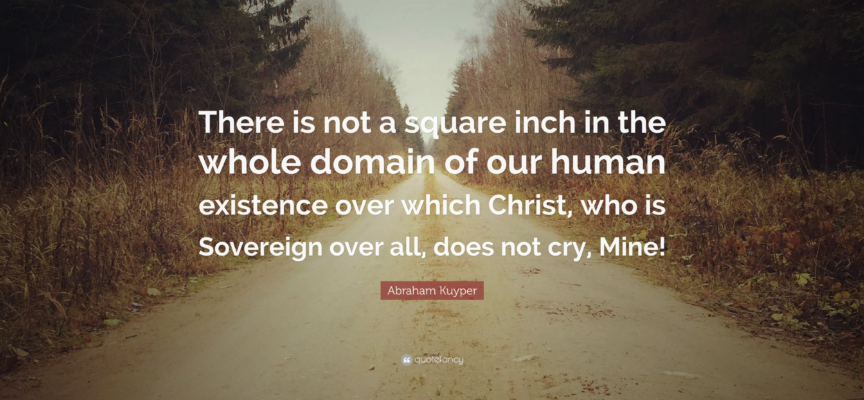In 2006, sociologist Philip Rieff (1922-2006) published My Life among the Deathworks, the first volume of his monumental Sacred Order / Social Order trilogy. In it, he argued that the West in general and the United States in particular is in the midst of an unprecedented attempt to desacralize the social order.
[Note: This article is an expansion of the comments I made in a July 12, 2017 panel discussion of Rod Dreher’s The Benedict Option. The discussion was held at the National Press Club in Washington, D. C. and hosted by the Institute on Religion & Democracy and moderated by its President, Mark Tooley. To view the video, click here.]
Historically, civilizations have always understood sacred order to fund social order by providing a world of meaning and a code of permissions and prohibitions. This meaningful and moral order shapes culture which in turn shapes the thought patterns and instinctual desires of the next generation. Thus sacred order, via culture, provided a powerful means of opposing social and cultural decadence.
In the West, Christian monotheism provided the sacred foundation upon which society was built. During our present era, however, many of the West’s most powerful culture-shapers seek to sever this sacred/social connection. Whereas Americans in the past sought to construct identity, character, and community vertically in relation to God, this era’s cultural elite (Rieff calls them “the officer class”) wish to construct them horizontally, without reference to God.
Such an attempt is not only impossible, Rieff argues, but socially destructive. It is impossible because, as Rieff writes, “Culture and sacred order are inseparable…. No culture has ever preserved itself where there is not a registration of sacred order” (Deathworks, 13). It is deeply harmful because it induces in society a nihilism that erases the lines drawn by God, sears society’s collective conscience, and rips up hope by its roots. For this reason, Rieff refers to many of this era’s cultural products as “deathworks”—instead of nourishing society, they poison it—and views the late twentieth-century’s proliferation of deathworks as a “final assault [on] the sacred orders” (7).
The Benedict Option
It is in response to this state of affairs that Rod Dreher offers The Benedict Option, a best seller that has already been described by David Brooks as “the most discussed and most important religious book of the decade.” Dreher begins the book by exhorting the Christian church to strengthen itself while there is still time. Although Christians have begun to come to grips with the reality of a post-Christian America, he avers, we have not yet taken the necessary steps to strengthen our communities for the difficult years ahead. To find our way forward, he avers, we must cast our eyes “back” to St. Benedict of Nursia, the early medieval monk who retreated to the forest after Rome’s fall and eventually built monastic communities undergirded by order, hospitality, stability, and prayer. As Dreher sees it, we should learn from those Benedictine communities so that our own American faith communities can be pockets of light in the new Dark Ages (1-20).
He continues by offering an intellectual history leading up to our post-Christian moment (21-47) before going on to outline the habits and values necessary for Christianity to thrive in such an era (48-77). These habits and values—including order, prayer, work, asceticism, stability, community, hospitality, and balance—are best articulated under the rubric of Benedict’s Rule. Just as Benedict left Rome and its corruption to found a monastery, so we should take a step or two in a more monastic direction. Finally, and for the majority of the book, he addresses seven significant dimensions of culture, providing basic guidance for faithfulness in those cultural dimensions, and illustrating faithfulness with stories from global Christian communities (78-236).
In the fourth chapter, “A New Kind of Christian Politics,” Dreher sketches his vision for 21st century Christian political involvement. He argues that Americans are living through a seismic cultural shift in which Christians have definitively lost the culture war and a seismic political shift in which social and religious conservatives have been relegated to the political margins (78).
In this situation, he urges, Christians should significantly reduce our focus on political activism, especially at the federal and state levels. We shouldn’t quit politics entirely and we should determine to fight politically for religious liberty (84), but for the most part we should engage in “antipolitical politics.” This antipolitical politics focuses its energy at the local level (78, 85-88), building communities of virtue that exemplify the Christian vision of the good life (89), and above all recognizing the church as a polis of its own (90-99). Dreher writes:
Here’s how to get started with the antipolitical politics of the Benedict Option. Secede culturally from the mainstream. Turn off the television. Put the smartphones away. Read books. Play games. Make music. Feast with your neighbors. It is not enough to avoid what is bad; you must also embrace what is good. Start a church, or a group within your church. Open a classical Christian school, or join and strengthen one that exists. Plant a garden, and participate in a local farmer’s market. Teach kids how to play music, and start a band. Join the volunteer fire department (98).
Dreher concludes with a moving paragraph recognizing that the church didn’t ask to be decentered, but should recognize its marginalization as a gift from God. “Losing political power might just be the thing that saves the church’s soul” (99). Now that we are relegated to the margins, maybe we will finally cease believing that the fate of the American Empire is in our hands and start working to advance God’s kingdom in our families, churches, and local associations.
An Abrahamic Alternative
The Christian community should be grateful for Rod Dreher and the concerns that animate The Benedict Option. There are many things to appreciate. With a keen eye, he discerns the ways our society and culture have been corrupted by sin and unbelief; consider, for example, his criticisms of classical liberalism as a political ideology and the sexual revolution as a social reality. With pastoral concern, Dreher exhorts Christians to nourish our identity in Christ by strengthening our churches, families, and other associations. With humility, he shows a willingness to learn from global Christian communities. With a golden pen, he communicates ideas lucidly for everyday Christians.
Similarly, there are many things to appreciate in his treatment of politics. In a moving and pastoral manner, he urges us to live with joyful confidence despite the fact that Bible-believing Christianity is slowly being decentered and neither political party’s program is consistent with Christian truth. He rightly urges Christians to fight for religious liberty, to recognize the church as an ordered community in its own rite, and to work hard to strengthen our churches, families, and other local associations.
However, I would suggest a slightly different path than Dreher’s Benedict Option. When as Christians we find ourselves in a position of social, cultural, and political weakness, and when we agree that the church is in sore need of building up its own internal resources, it does not follow that we should also and at the same time minimize our political involvement. Instead, we should hold these two aspects of the Christian life in balance; we should construct a resilient ecclesial counterculture while simultaneously working for the common good via political means.
In order to envision this balance, I offer what I call—playfully—An Abrahamic Alternative to Dreher’s Benedict Option. I am speaking not about the biblical patriarch, of course, but of the great Dutch politician and public theologian Abraham Kuyper. Kuyper’s response to an encroaching secularism was to lean on creation’s normative order to encourage Christian witness and action in every sphere of culture including politics.
Creation’s Normative Order
Kuyper articulates creation’s order in terms of “sphere sovereignty.” This was his way of describing the various spheres of human activity and their relationship to one another. As the name implies, Kuyper understood each sphere of culture to have an inherent sovereignty; each has its own center (reason for being) and circumference (limits to its jurisdiction). The political sphere, for example, exists to achieve justice for the individuals and communities under its purview, but its jurisdiction is limited and does not extend to the artistic, educational, or ecclesial realms. In other words, Kuyper’s sphere sovereignty is a de facto system of checks and balances—not at the political level by dispersing governmental authority but at a deeper, ontological level by dispersing cultural authority. So Christ the King rules over every sphere, but he also orders each sphere according to distinct patterns.
In Kuyper’s approach, faithful Christians should approach a given sphere of culture by discerning God’s creational design for it and exploring the ways his intentions for that sphere have been corrupted and misdirected by individual sin and corporate idolatry. After having done so, the Christian community can work together to seek healing and redirection for that sphere.
As David Koyzis notes in his review of The Benedict Option, our recognition of creation’s normative order reminds us that God is faithful to his creation even when his creatures are not faithful to him. It reminds us that God created the spheres—including the political sphere—and holds them in his sovereign hand. By implication, no sphere, no matter how corrupted or misdirected, is too far gone. No matter how strong the hold secular progressivism (or any other ideological illusion) may seem to have on our nation, it cannot contradict reality indefinitely without impunity. “Truth has a way of making its presence felt, even as some undertake to deny it.” By God’s grace, our faithful political efforts might eventually bring some healing and redirection to the political sphere.
The Church’s Division of Political Labor
When the crucified-but-risen Lord ascended, he left behind a new community, the church. This community is our God-given formation center for public witness to Christ’s kingdom, and it exists in two capacities—as institution and as organism. As an institution, it gathers weekly to worship the Lord through the proclamation of the Word, celebration of the Lord’s Supper, and fellowship with one another. The institutional church’s “power” is not political activism but proclamation of the gospel, a proclamation that challenges the cultus publicus of every nation, including our own. By proclaiming that Jesus is Lord (and Caesar is not), the church nourishes our true political identity and previews the day when the Lord will return to install a one-party system and reconstitute the world under a reign of justice and peace.
Yet the church exists also as an organism. After having gathered institutionally to nourish our political identity, we are sent as ambassadors of the King into our respective stations in life. In a democratic republic, every Christian is able to shape public life not only through our general witness and way of life, but also through political party involvement, voting decisions, and public policy debate. Additionally, some Christians—such as elected officials, political staffers, policy experts, judges, or lawyers—can serve our nation politically in more specific ways.
In summary, Sunday morning public worship prepares us for Monday morning public life. Sunday morning worship reminds us that Christian Scripture provides the true story of the whole world, and that Jesus stands at the center of that story as the King of the world. Monday morning public life provides the opportunity for Christians to allow the Bible’s story and Jesus’ kingship to shape the way we speak and act in the public square. After gathering to bask in Christ’s light together, we are prepared to disperse for the rest of the week to reflect the “light of the world” together in our respective stations of life.
Public Witness from a Position of Political Witness
What might an Abrahamic Alternative look like in twenty-first century America? In many respects it will look a lot like the Benedict Option, only with a steady resolve to work politically for the common good even while we focus on strengthening our local churches and communities. If we can balance these two aspects of the church’s mission, we can carve out a path of faithful witness even from a position of social, cultural, and political weakness. As I have a written elsewhere, this path of faithful witness must involve focused attempts to recenter God in the public imagination, decenter ourselves by breaking society’s ability to dismiss us as a special interest group, reframe policy issues in light of the gospel, and revitalize cultural institutions that can shape the instincts and imaginations of future generations.
Recentering God
In an era when many persons with cultural power wish to desacralize the public square, we must cultivate the type of public witness that calls attention back to the cosmic King. We must strengthen and enhance our confession that Jesus is Lord. We must find compelling ways to show that the biblical narrative—rather than the Fox News or MSNBC news narratives—is the true story of the whole world. We must be keen to identify the idols that haunt every modern political ideology, including liberalism, conservatism and progressivism, nationalism, and socialism.
We must find ways to make clear that our ultimate allegiance is to Jesus Christ, not to any particular political ideology, party, or platform. This is not to say that we cannot be active in political parties or supportive of political candidates. We can and often we should. But as we engage in politics, we must remember that every political commitments and affiliations are tentative in light of our loyalty to Jesus Christ. Occupants to Caesar’s throne come and go; Jesus remains forever.
Decentering Self
Any attempt to recenter God must be accompanied by a decentering of the self. We must seek the good of the city (Jer 29:5-7) rather than merely the good of our own tribe. Evangelicals should be the heart and strength of every good movement of social, cultural, and political effort. We should be the first to work on behalf of persons and groups who are financially disadvantaged, ethnically downtrodden, or social marginalized. Our love for Christ and our neighbor demands it, and our position of political weakness cannot restrain it.
We must be concerned not only with the truth content of our moral and political stances, but with the way in which we communicate them. As an antidote to the toxic nature of American public discourse, we must refuse to mock and demean our opponents, to purposely misrepresent them, to demonize them, or to question their motives unfairly. It is a deep and ugly irony when we purport to represent a gospel of grace but articulate our views in ways that are profoundly un-gracious.
Reframing Issues
When we give our ultimate allegiance to Christ alone, we are then liberated to reframe divisive public issues in light of the gospel. For example, the gospel reframes our approach to money by revealing that it is neither our savior nor our security, and by causing us to be radically generous to the economically disadvantaged. Likewise, it reframes our approach to power by causing us—counterintuitively—to lovingly serve and empower others while decentering ourselves. As Tim Keller often reminds us, this gospel-centered reframing will break the ability of American to dismiss the church as a special interest group beholden to any one political party. The church will be able to regain the distinctiveness and clarity and strength of her voice by viewing public issues in light of Christ and his gospel.
Revitalizing Culture
In the midst of a society of cultural “deathworks,” evangelicals must work to revitalize cultural institutions and renew cultural realities in such a way that we help shape the instincts and imaginations of future generations. Christ-centered culture work is a powerful means of opposing social and political decadence. And we need not hold all the levers of power to create life-giving culture.
In our efforts to revitalize culture, we should play the long game and take the broad view. We should play the long game by not putting all of our hopes in short-term political activism. Short-term activism has its place, but its power to influence is limited and it often tempts us to sacrifice long-term witness on the altar of short-term political gain. We should take the broad view by working faithfully to renew every dimension and institution of culture—not merely politics, but also marriage and family, the arts and sciences, scholarship and education, and business and entrepreneurship. Our political witness will only gain more plausibility from such a unified witness.
We do this work, not to win, but to follow our Lord in obedient witness. We cannot transform culture; only Jesus can do that, and our efforts are emboldened by the assurance that he will. If our efforts are successful, they serve as previews of his coming Kingdom. But even if we see no tangible success in our attempts, while we may be disappointed, we will not be dismayed. No labor for Christ is ultimately fruitless.
Meeting God as Americans
We should thank Rod Dreher for challenging us to reflect on what it means to be a faithful Christian in our increasingly challenging American context. When the Lord returns victorious, we will meet him first and foremost as Christians. But we will also meet him as twenty-first century Americans. Being an American is not the most important part of our identity, but it is an inescapable part and one for which we will give account. We owe it to God and to our fellow citizens not only to build strong Christian communities but to seek the common good via political means even—and especially—when we find ourselves in a position of social, cultural, and political weakness.
Subscribe
Never miss a post! Have all new posts delivered straight to your inbox.








I belong to a Unitarian Universalist church, so I’m probably not the target market for The Benedict Option. Nevertheless, I found Dreher’s advice on engaging in antipolitical politics relevant for my congregation as well. Start by unplugging from the toxic mass media. Surround yourself with fellow seekers, who are pursuing truth with love. Fully live your values – indifferent to the summary judgement of the herd.
Dr Ashford in your article you state : During our present era, however, many of the West’s most powerful culture-shapers seek to sever this sacred/social connection.
as a long time resident of Oregon – since 1987 – I would suggest that most of the West coast has already seen the connection severed. Recent legislation in Oregon real drugs, abortion tell me that the connection is gone. as a pastor in a small rural community that is politically conservative I find it harder to stay engaged in cultural battles that appear to be over and finished. I doubt re-criminalizing drugs is going to occur and tax funding for aborting is unlikely
to be repealed. interestingly enough some evangelical churches – non SBC churches- are growing in size but having no discernible impact on social issues. Christian artists draw sell out crowds to arenas in Portland but little lasting impact is seen.
I don’t fully agree with Dreher but I am unsure of any other viable options.
presenting the gospel is difficult enoughave but a comm unity wit has no concept of sin makes presenting the gospel challenging.
just my 2 cents worth